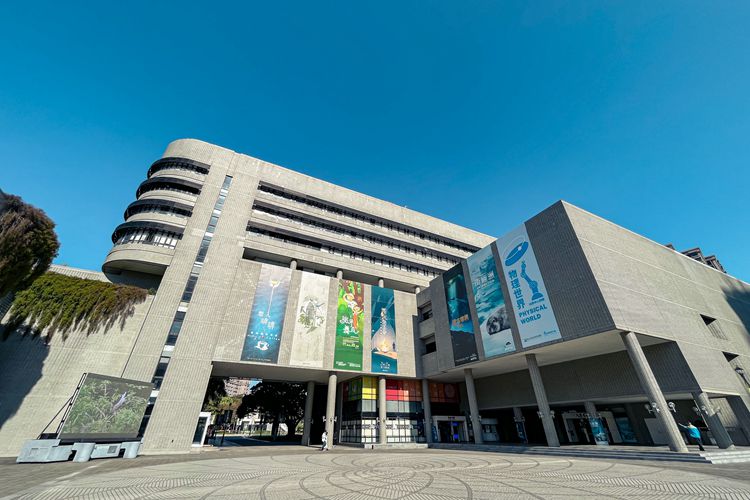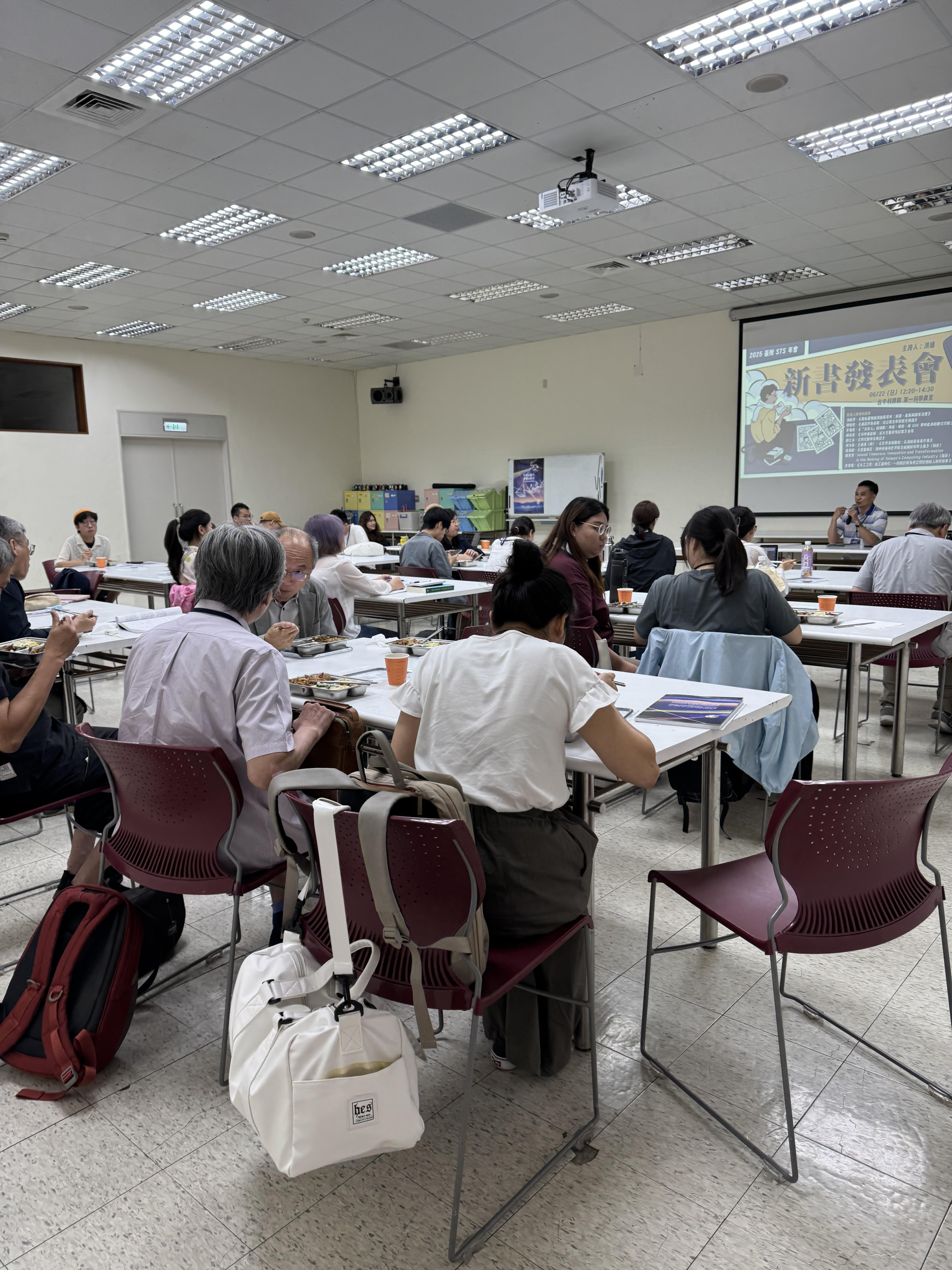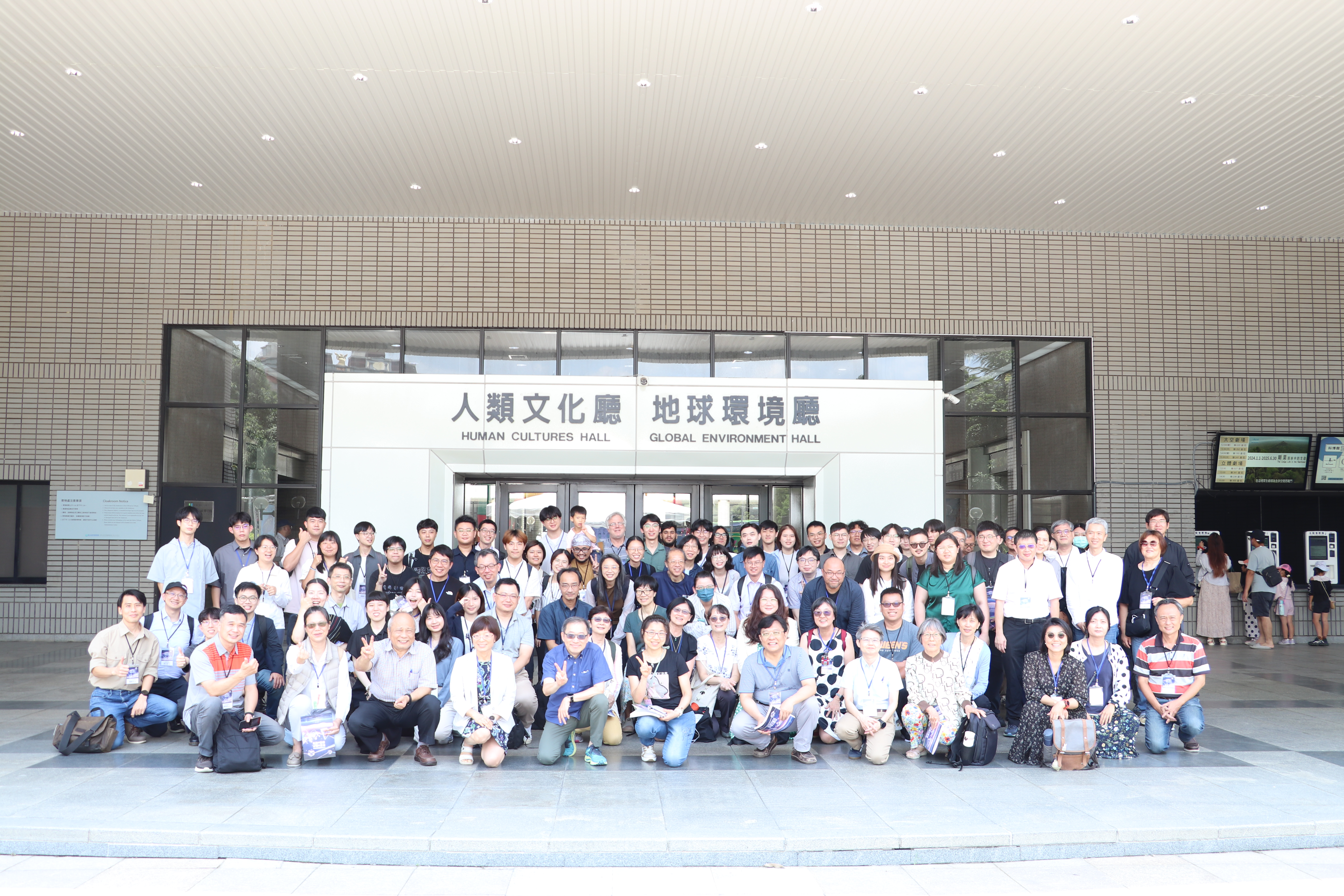Some recent evidence of the vibrancy of the STS scholarship in Taiwan
Authors: Wen-Ling Hong, Wan-Ju Lee & Hsiu-Yun Wang (Taiwan STS Association)Editor: Auriane van der Vaeren (4S Backchannels)
September 1, 2025 | Report-Backs
As some of you may know, the recently elected 4S president, Professor Wen-Hua Kuo, is from Taiwan. This landmark achievement is a source of great pride for the Taiwan STS Association, which was established in 2008. With over 150 members, alongside engaging in scholarly STS contributions, the association consists of an interdisciplinary group of scholars deeply engaged in public affairs, science policies, and higher education development. Taiwan is also the home of the first STS journal for East Asia and beyond, the East Asian Science, Technology and Society: An International Journal.
The domestic vibrancy of the STS scholarship shined all its lights in June 2025, when the association held its 18th annual STS conference under the theme, Science on Display and Engaging the Public. We here wish to provide you with a snapshot review of the conference to update the 4S readership about the current topics dear to the Taiwanese STS space.

The poster of the Taiwan STS Association’s 2025 conference Science on Display and Engaging the Public
The conference took place at the National Museum of Natural Science in Taichung. It is Taiwan's largest science museum and a fitting venue for the theme. The conference, including participants from Australia, Indonesia, Japan, and the US, featured 96 paper presentations across 37 sessions, 10 roundtables, 4 poster presentations, and two keynote speeches. To date, it is one of the association's largest gatherings. The sessions were highly participatory and covered many pressing issues affecting Taiwan and the world, including energy policies, people's livelihoods (such as sports) in the context of climate emergencies, media portrayals of scientific controversies, and the complexities of care during the pandemic and in medical practices. As a central thread of the conference, science communication was explored in various formats: from book launch presentations and art exhibitions within museums, to discussions of how new media like animation can stimulate public engagement with STS concepts. The conference's core mission was to explore the multifaceted ways in which science and technology are represented and communicated to the public in the case of Taiwan and beyond.

National Museum of Natural Science in Taichung
Though the conference theme was set as Science on Display and Engaging the Public, intriguingly, issues related to climate change stood out. This was indeed a surprise to us, because STS in Taiwan has tended to focus on health- and medicine-related topics. This overarching environmental tone was therefore also set in the two powerful keynote speeches. Dr. Wen-San Huang, the Director General of the venue, spoke about his research on the sea turtles, snakes, and other reptiles of Orchid Island. He highlighted how these animals' habitats and hunting practices possess a strong sense of "agency" under the pressures of climate change. His talk fore-fronted a local, multispecies perspective that challenged attendees to consider the non-human actors in scientific and environmental narratives.
Joining Dr. Wen-San Huang’s momentum, Professor Thom van Dooren from the University of Sydney then spoke about his extensive research on snail species in Hawaii, relating it particularly well to the conference’s theme. He delved into key aspects of multispecies research, the ethical and political meaning of storytelling in public engagement, and reflections on classification within different cultural contexts.
The audience was highly engaged with both keynote speeches, leading to lively discussions on the agency of animals and humans during catastrophic times and on how biologists grapple with the theoretical approaches that STS and multispecies research takes. It was one of those moments where the depth of the scholarly dialogue between Taiwan's biological sciences and its STS scholarship was on full display.

A cross-generational STS crowd
A particularly encouraging aspect of this year's conference was the strong presence of younger scholars, who presented research stemming from their undergraduate and graduate term projects. The diversity of academic backgrounds was also striking, with participants coming from media studies, industrial design, and even Taiwanese literature in addition to history, sociology, anthropology, and STS. This interdisciplinarity showcased the broad appeal and relevance of the STS scholarship in Taiwan, even though currently speaking we only have one STS master's degree graduate institute among our 142 universities, the Institute of Science, Technology and Society of the National Yang Ming Chiao Tung University. Like other parts of the world, establishing new research institutes in the humanities and social sciences is challenging, if not impossible—in part, due to the uneven distribution of academic funding resources.
The conference also celebrated emerging scholars with its annual thesis awards, recognizing outstanding new research in STS. Together, these award-winning projects highlight the intellectual dynamism of Taiwan's STS community, showcasing sophisticated engagement with topics going from embodiment and kinship, to global supply chains and the history of Science.

Conference group photo
Remaining true to the conference’s theme of public engagement, this year's exhibition uniquely blended academic and activist engagement, creating a vibrant space for dialogue. Alongside leading academic exhibitors—including publishers, like National Yang Ming Chiao Tung University Press (NYCU Press), and renowned journals, such as East Asian Science, Technology and Society: An International Journal and Taiwanese Journal for Studies of Science, Technology and Medicine—the conference therefore featured community partners like M. Mutica in Action, an NGO focused on degrowth, and A-Kuei’s Farm, a small-scale farm dedicated to food and agriculture education. M. Mutica in Action hosted a particularly engaging interactive card-based roleplaying game that challenged participants to confront climate inequality firsthand: after drawing roles ranging from the global top 1% to a member of a Global South community, they had to make consumption choices with vastly different "climate currency" budgets1. This powerful exercise, followed by local degrowth stories from Taiwan, sparked a vital discussion about the potential for systemic change.
So … curious about our 2026 conference edition?
Notes
1 If you want to know more, reach out to the Taiwan STS Association at, sts.org.tw@gmail.com.
Authors
Wen-Ling Hong holds an Engineering PhD in Naval Architecture from the University of Michigan and is a faculty member of the College of Maritime, National Kaohsiung University of Science and Technology, Taiwan. Her STS work integrates engineering with public engagement, societal issues, science communication, and citizen participation in marine affairs.
Wan-Ju Lee holds a PhD in Sociology from Lancaster University, specializing in scientific governance, public participation, and deliberative democracy. She is an assistant professor in the Department of Sociology, National Sun Yat-Sen University.
Hsiu-Yun Wang holds a PhD in History of Science from University of Wisconsin-Madison, specializing in gender and medical history. She is a professor in the Dept. of Medical Humanities and Social Medicine, School of Medicine at National Cheng Kung University and the president of the Taiwan STS Association, 2024-2026.
Published: 09/05/2025
